Are portable pressure washers worth it? It’s a question we hear a lot — especially when those compact, cordless units promise power without the bulk. You’ve probably seen one at Bunnings or caught an ad mid-footy — sleek design, no cords, quick-clean action. Tempting, right?
But do they actually deliver? Or are they all splash, no scrub?Let’s break it down, tradie-style — no fluff, no marketing spin. Just the facts on what portable pressure washers can handle, where they shine, and when you’re better off reaching for the petrol rig with a six-metre hose.
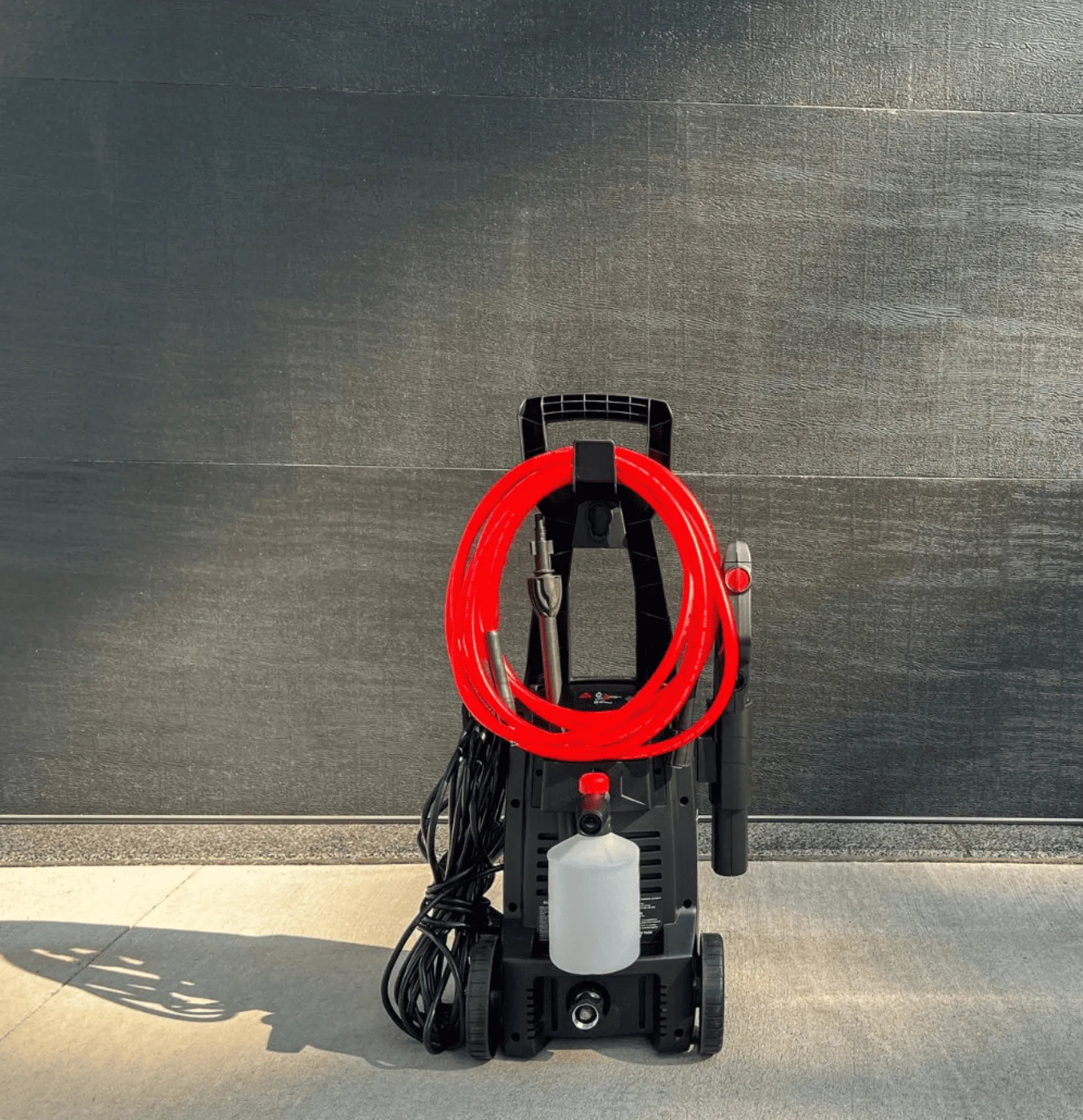
Here’s What Counts
Let’s clear something up — portable doesn’t mean weak. It just means easy to move around, often powered by a rechargeable battery or running off a bucket of water. These aren’t your average plug-in washers — we’re talking about battery-operated pressure washer units, often compact in design and sold with a Washer Kit that includes a soft lance, detergent bottle, and maybe even a bike head for wheels.
Types of pressure washers considered portable:
- Cordless pressure washers (battery-operated)
- Mobile pressure washers with built-in wheels and a tank
- Wall-mounted and portable pressure washer combos (like Giraffe Tools’ wall-mounted pressure washers — tidy but pricey)
- Electric washer units with short cords and compact builds
Right Time, Right Tool
Not all outdoor cleaning tasks call for axial pump pressure washer muscle. Sometimes you just want to tidy up a mess without setting up the entire cleaning station.
Great for:
- Washing down bikes and scooters
- Rinsing salt and grime off patio furniture or BBQs
- Prepping a concrete patio before applying wax protection
- Cleaning bird droppings off solar panels or window glass
- Spraying pollen or dust from garden paths or fences
We’ve seen battery-powered pressure washer users in Brissy spray down red dirt from 4WDs, and others using them on balconies where a standard garden hose isn’t practical. Handy gear when you’re tight on space or just want to keep your cleaning area tidy.
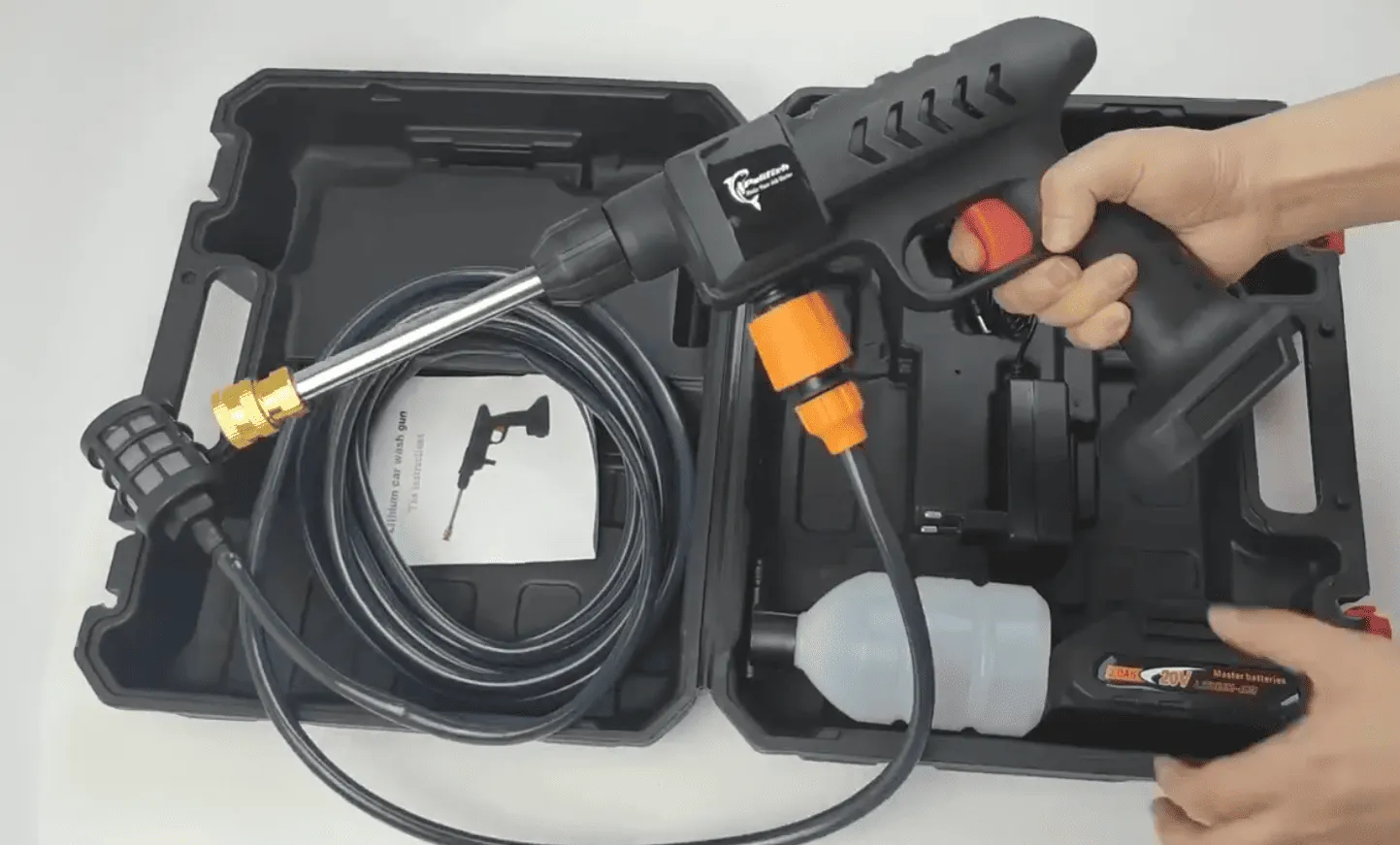
Where They Fall Short
Here’s where expectations meet cold reality. Portable washers aren’t built for deep cleaning concrete, cutting through grease, or shifting built-up gunk on porous surfaces. If you’re dealing with driveway oil stains or tile mildew, don’t expect a stream of water from a battery-powered washer to work miracles.
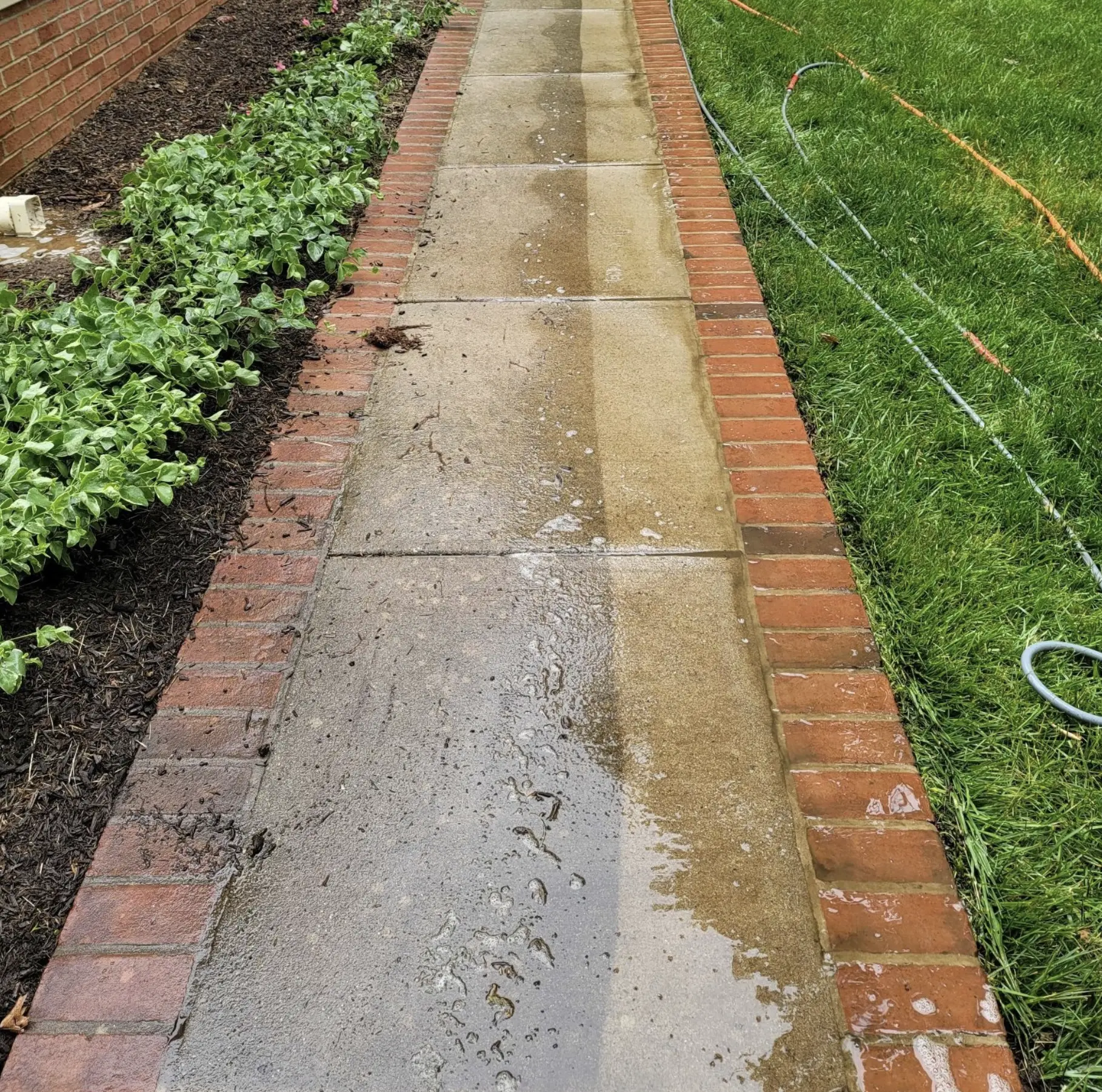
- Cleaning of concrete with embedded grime
- Old render, sandstone, or porous brick
- Roof tiles, gutters, or any job needing a ladder
- Big patios with heavy stains
- Areas with low water pressure or inconsistent water supply
We had a client in Newcastle try to clean their entire pool surround with a budget cordless pressure washer — it took three days and two battery packs. Even then, the pressure cleaning process wasn’t finished until we came in with a proper electric pressure washer.
Power, Water, and Cost Issues
Let’s talk numbers. That shiny battery-powered pressure washer box might promise 30 minutes of run time. But that’s assuming perfect conditions — no wind, no back-and-forth, and full battery power.
Realistically, between switching lances, moving around, and pausing to refill your bucket of water, you’ll get about 15–20 minutes of solid cleaning session time.
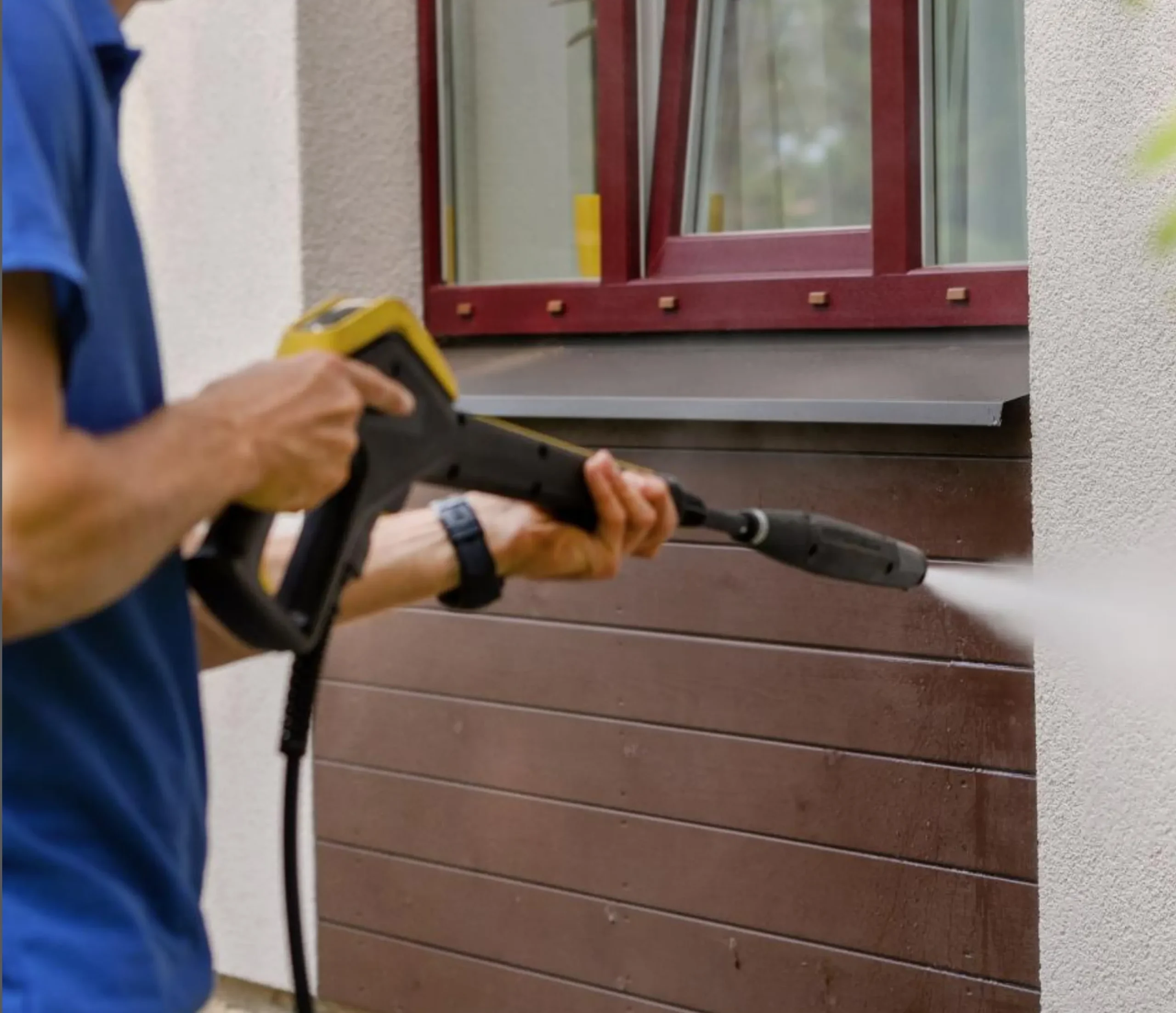
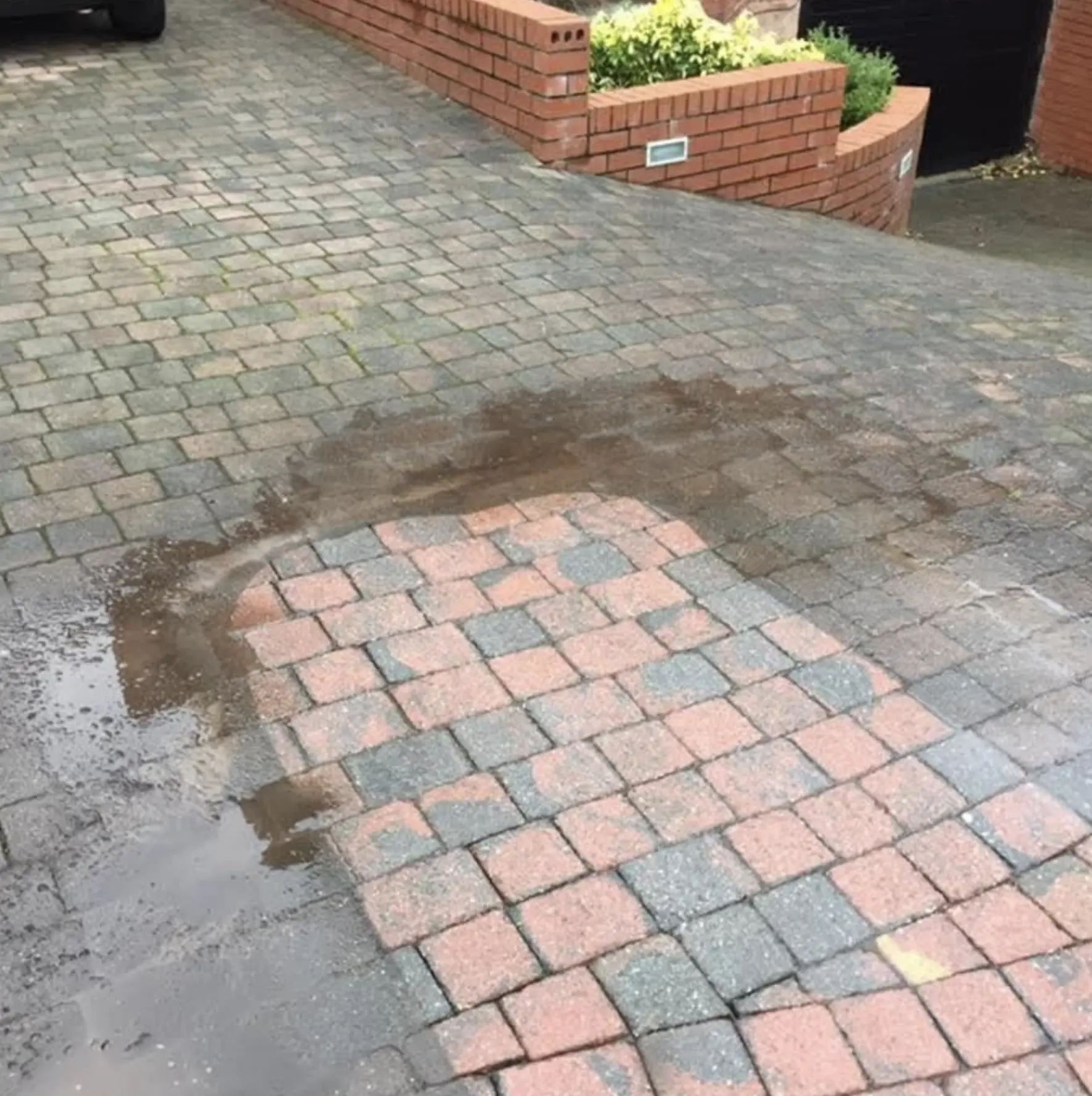
Common portable unit specs:
- Water flow rate: 2–4 LPM
- Pressure: 70–120 bar (1000–1750 PSI)
- Tank capacity: 10–20L
- Charge time: 2–4 hours
- Cleaning power: Suitable for light rinse, not Heavy-duty cleaning
Oh, and the battery replacement costs? They’ll sting. Some cordless models need proprietary battery packs that don’t share across your other cordless power tools, unless you stick to a battery sharing range like Ryobi or Makita. And while they’re convenient, expect to lose runtime fast if you’re blasting full tilt.
Pressure Washer Power Types Compared
| Feature | Cordless Unit | Corded Power Washer | Petrol Washer |
|---|---|---|---|
| Portability | Excellent | Medium | Poor |
| Runtime | Limited (battery power) | Unlimited (extension cord) | Unlimited (fuel-dependent) |
| Cleaning Power | Light to moderate | Moderate to strong | Strong to class-leading |
| Flow Rate (LPM) | 2–4 | 5–8 | 10–20 |
| Pressure (bar) | 70–120 | 130–160 | 200–300+ |
| Best For | Outdoor cleaning tasks, bikes | Decks, walls, driveways | Deep cleaning, commercial use |
| Price Range | $100–$350 | $250–$600 | $800–$2,500+ |
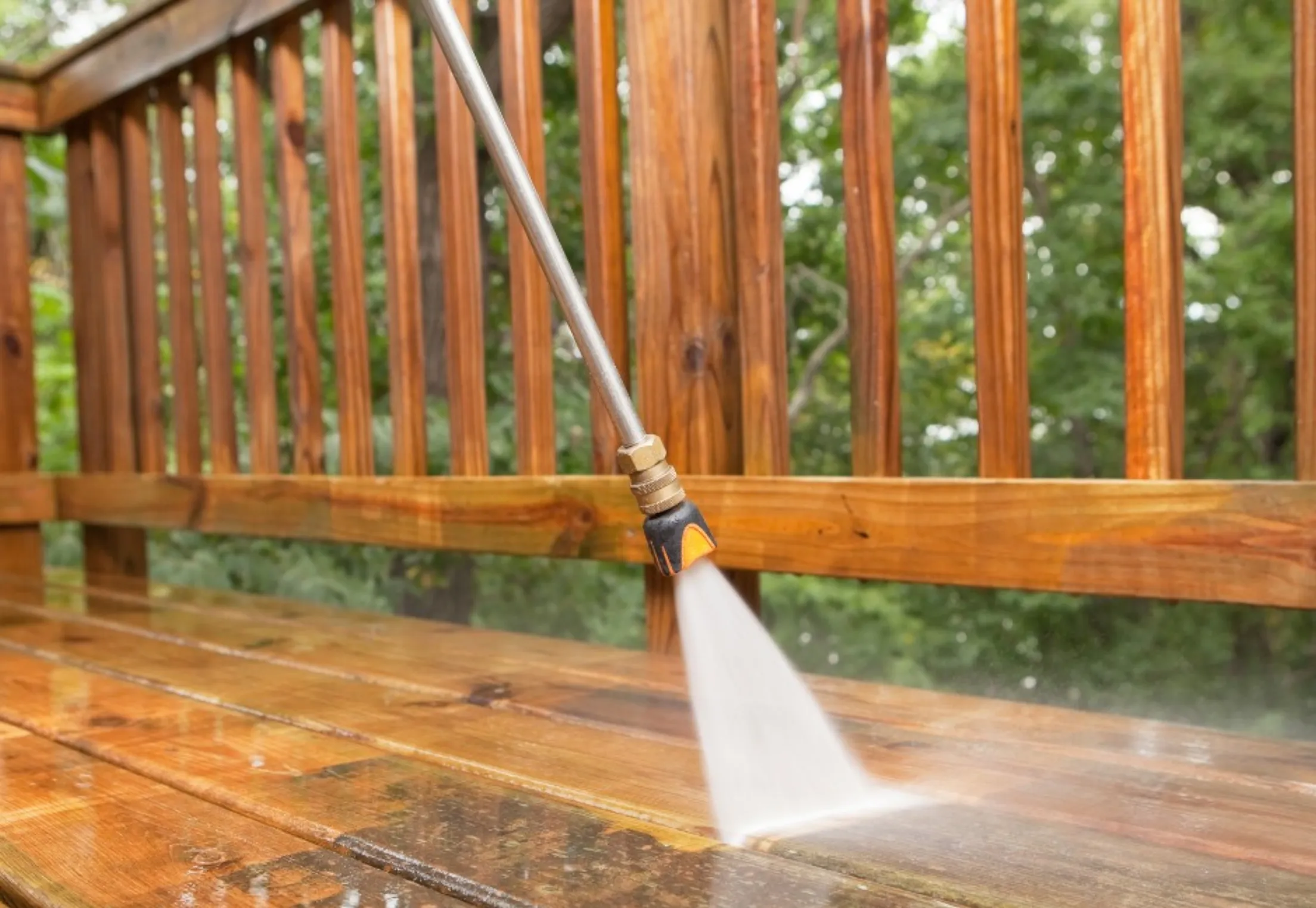
Pressure, Flow and Why PSI Isn’t Everything
Everyone talks about PSI (pounds per square inch) — but the water flow rate (LPM) and water volume matter just as much. The higher the combo of flow and pressure, the more cleaning muscle behind the blast of water.
We’ve tested cheap-feeling hose attachments on low-end battery-operated units and compared them to a best-corded power washer. It’s not even close. A high bar of water pressure doesn’t mean much if your water capacity and flow are low. You want consistent water pressure — not a dribble halfway through your job.
Design Quirks, Build Quality, and Battery Gripes
Here’s where the rubber meets the pavement. Some of these affordable power washer units have brilliant ideas — like compact cordless designs and convenient connection designs. But then they pair them with budget plastic fittings, a stiff bike lance, or a blank range battery indicator that tells you zilch.
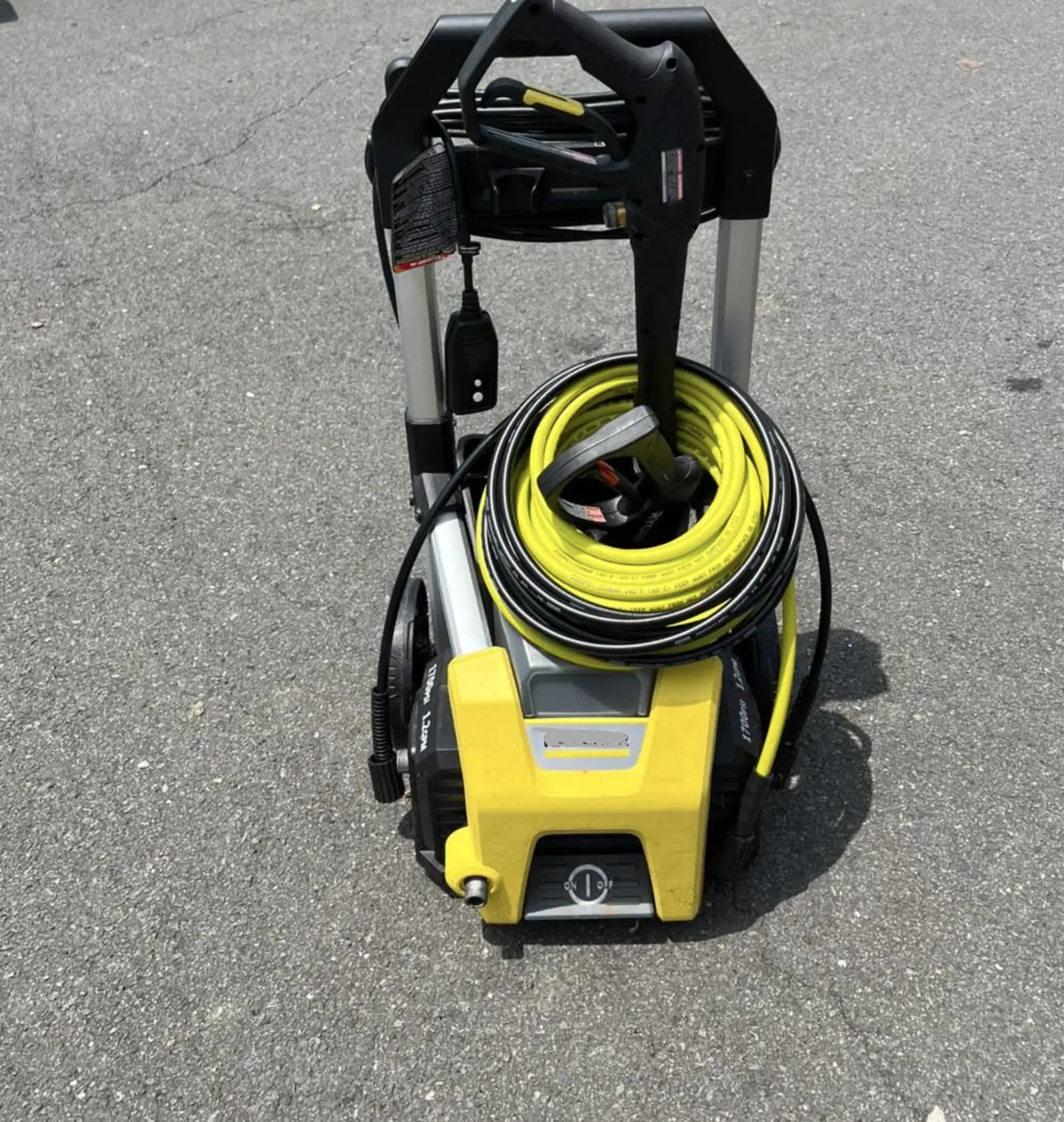
Design Quirks, Build Quality, and Battery Gripes
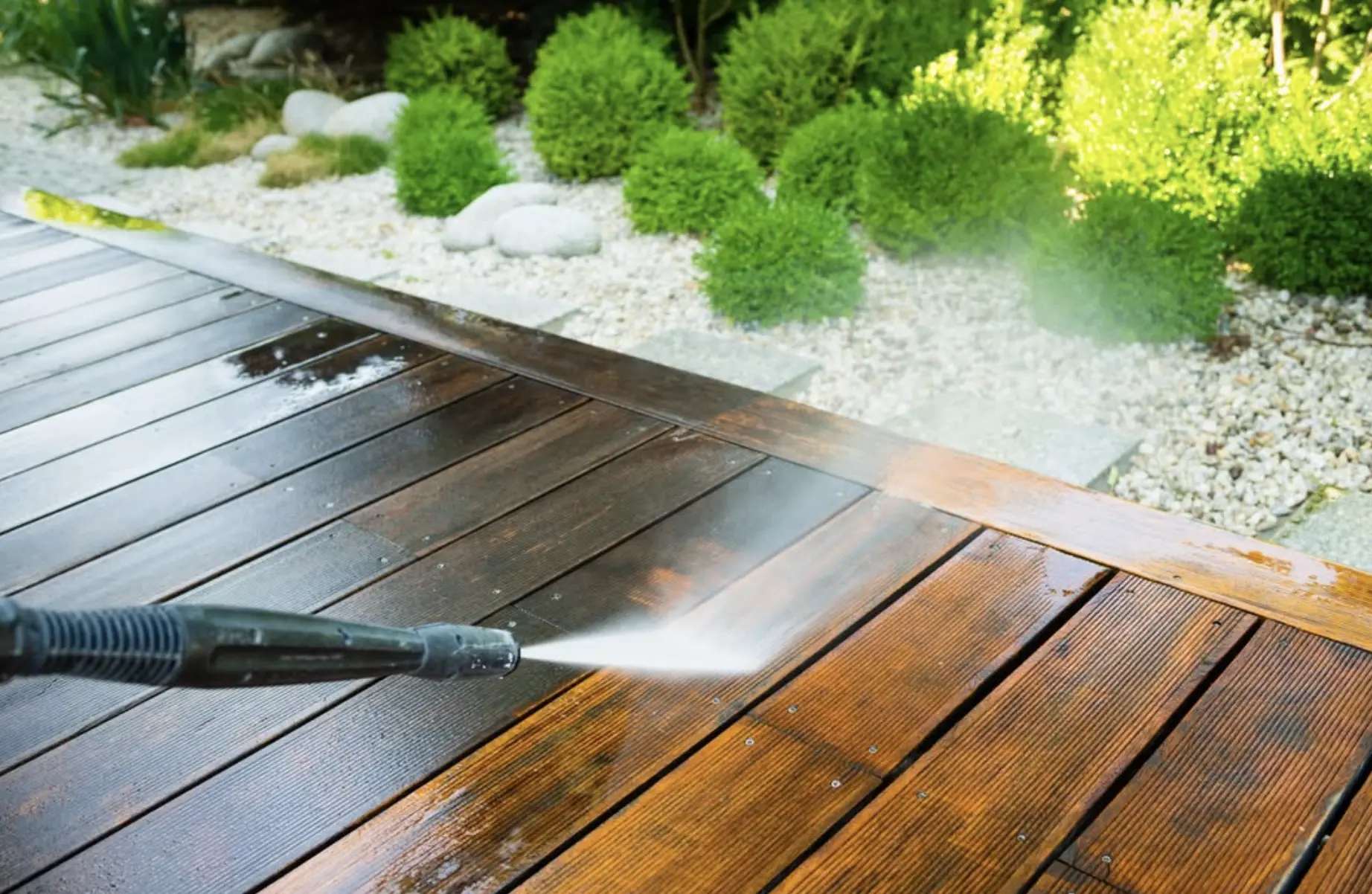
Common issues we’ve found:
- Cheap option washers that leak at the trigger
- Cord to mind snagging on every bush and bench
- Small tanks that empty in 5–10 mins
- Thin hoses that kink like a garden worm
- Assemble tool nightmares with mismatched fittings
Look for models made with high-quality materials — brass connectors, sturdy housings, and class-leading water delivery. Giraffe Tools’ wall-mounted pressure washer is one of the better built options — but it’s not cheap.
Are Portables Better?
Short answer — they can be. With a lower stream of water, you’re less likely to waste gallons of it. Handy during drought conditions or on water restrictions, especially in the NT dry or parts of inland QLD.
But keep in mind — if it takes 4 passes to clean what a conventional power washer does in one, the eco-benefit disappears fast.
Pro tip: always sweep before you spray, and use eco-safe detergent to reduce stormwater pollution. Bonus if your washer has a detergent tank or attachment.
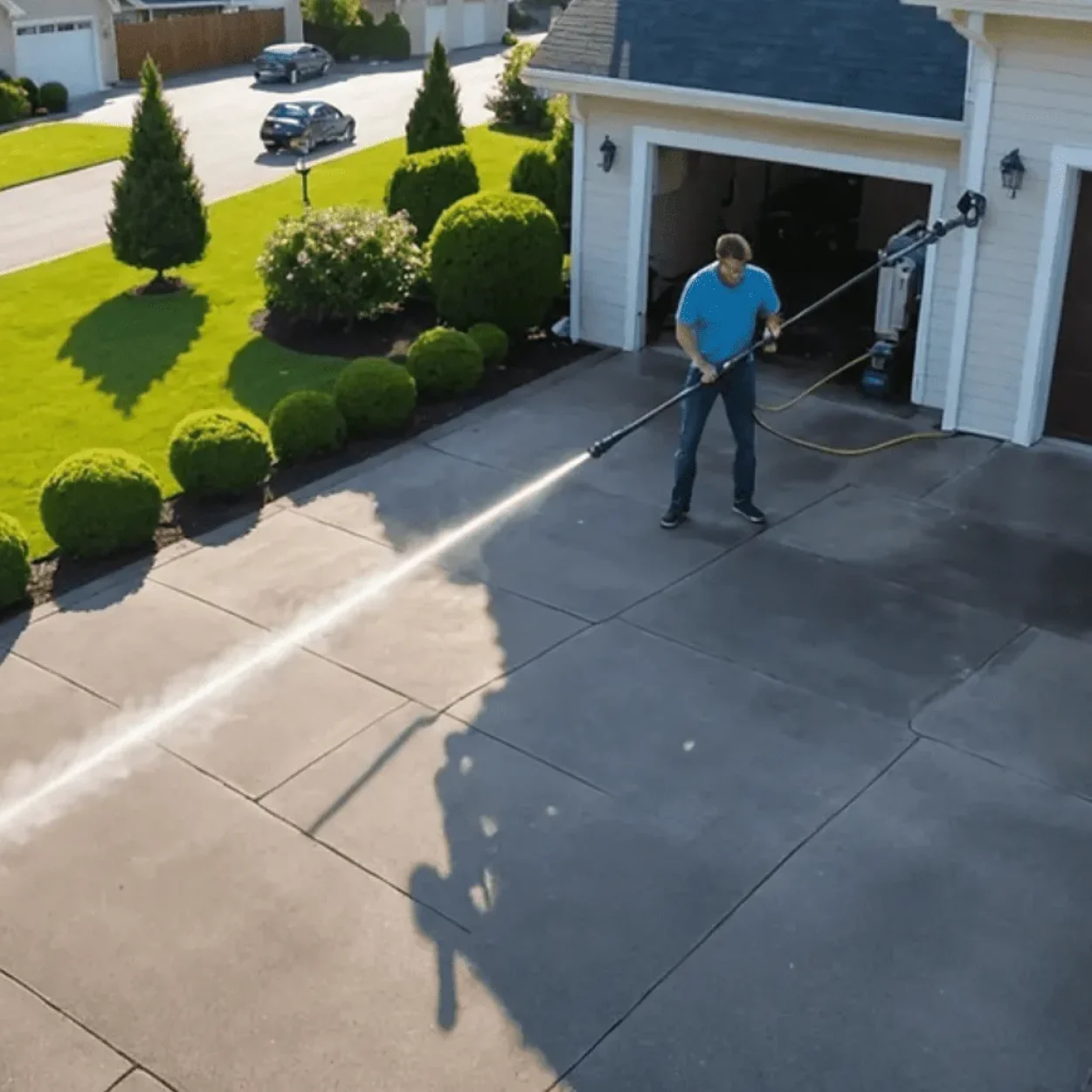
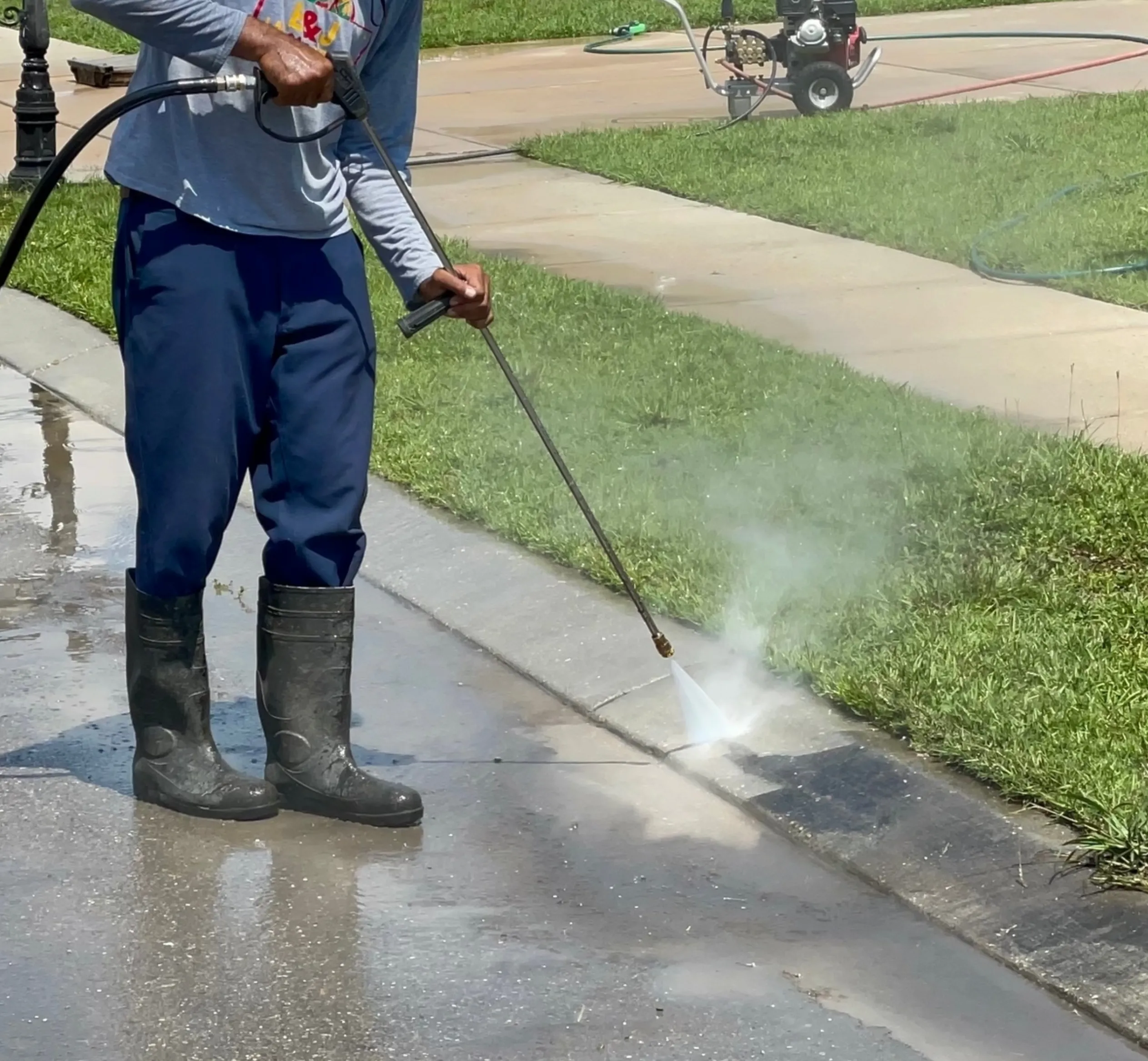
When to Call
Got black mould? Rust on render? Or just sick of battling your battery cleaning woes?
We’ve got electric models, high-flow rigs, and the know-how to soft wash coloured render without stripping the pigment. We’ve cleaned more algae than most people have eaten Vegemite, and we won’t leave your cleaning equipment scattered across the yard.
Sometimes, saving a few bucks on a budget mobile pressure washer ends up costing more — in frustration, damage, and cleaning routine burnout.
FAQ
Can a cordless pressure washer clean a concrete patio?
Only for light dust or bird droppings. For oil stains or deep grime, you’ll need a high-pressure hose and a real plug-in or gas washer.
How long does a battery last on a portable washer?
Anywhere from 15–40 minutes depending on the model and pressure setting. Some battery-operated units include a second pack, but recharge times can be long.
Is a wall-mounted pressure washer better than a portable one?
Yes — especially if you’ve got a cleaning routine or larger area. Wall-mounted and portable pressure washer hybrids offer better cleaning experience and power.
Can I use a standard hose with a portable pressure washer?
Some models allow standard hose or garden hose connection. Others draw from a bucket — just check if it handles your water flow rate.
Are there affordable options that are still of good quality?
Yes, but avoid ultra cheap option units. Look for affordable options with solid build, a decent battery indicator, and convenient pressure washers from brands.






